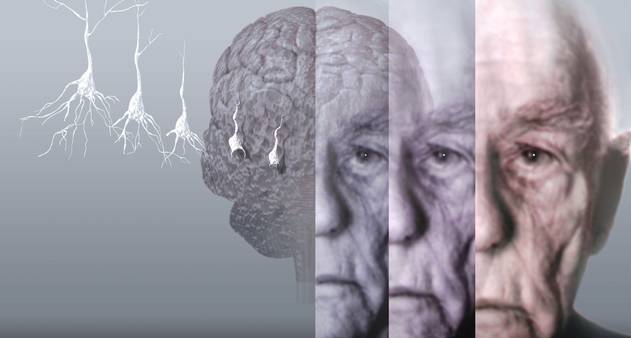Many studies were conducted in order to understand Alzheimer’s disease but there is still no effective and complete cure. Moreover, there are a lot of different illnesses that can complicate Alzheimer’s disease or be linked to it. If you suffer from at least one of the diseases mentioned below, you should find treatment options that will help you to get rid of them. In this article, we gathered six conditions that are connected to Alzheimer’s disease.
1. Anxiety or depression
Some studies have shown that people who have Alzheimer’s disease were also suffering from anxiety or depression. In addition, these conditions are not just symptoms, but they can also develop into Alzheimer’s disease. These types of mood disorders can boost cortisol levels (the hormone that is responsible for stress) and there is a theory that high levels of cortisol can damage the brain.
Researchers also found that antidepressants can be considered a treatment option for Alzheimer’s disease. Some antidepressant medications have anti-amyloid properties that help ease the symptoms of Alzheimer’s.
2. Gingivitis and periodontitis
Severe gum disease can also be a cause of Alzheimer’s disease. All those dangerous bacteria that accumulate in the mouth can penetrate the bloodstream and be delivered to the heart and brain where they may lead to inflammation. Moreover, gingivitis and periodontitis are quite common conditions with approximately 50 percent of adults in the United States suffering from gum disease. But fortunately, this is an easily preventable condition. All that you need to do is maintain proper dental hygiene like brushing teeth, flossing, and regular dental check-ups.
3. Chronic infections
There is a strong connection between some chronic infections (such as herpes) and Alzheimer’s. Some infections can trigger chronic inflammation that can aggravate the symptoms of Alzheimer’s disease. Studies show that almost 90 percent of adult people have the herpes virus.
However, you shouldn’t panic if you don’t constantly have a cold sore. But if you have this cold sore very often, it is better to visit a doctor. He or she can recommend you take some antiviral medications. Currently, researches are looking for vaccines or medications that will be able to eliminate these chronic infections.
4. Thyroid disorder
Such thyroid disorder as hypothyroidism in older women can cause problems with memory that worsen Alzheimer’s symptoms. The most common symptoms of hypothyroidism include:
- Weight gain
- Sensitivity to cold
- Constipation
- Fatigue
Treatment options for this thyroid disease can be very effective. That’s why it is important to visit a doctor in order to cure hypothyroidism in the early stages.
5. Vitamin deficiency
Cognitive impairment can be caused by vitamin B12 deficiency. Despite the fact that vitamin B12 deficiency is not a very common condition, it is noticed in people who constantly take medications that decrease acidity in the stomach.
There are some studies that found vitamin D deficiency can increase your risk of dementia or Alzheimer’s disease over time. To stay on the safe side, it is better to consult your doctor about your risks. Blood tests can also help detect problems.
6. Anemia
Anemia is a condition when there is a lack of red blood cells in the body. One of the most common symptoms of anemia is constant fatigue. It is usually accompanied by shortness of breath, cold hands and feet and weakness. The American Society of Hematology reports that approximately three million Americans suffer from anemia. Iron deficiency is considered one of the causes of anemia. You can get it due to blood loss, medical conditions, or poor diet. Moreover, iron deficiency can be a result of certain medications.
Studies also discovered that there is a connection between Alzheimer’s disease and anemia. But if you have anemia, you shouldn’t think that you will definitely get Alzheimer’s disease. The fact is that your condition can only increase the risk to develop it over time. The problem is that when your brain doesn’t receive enough oxygen, you can have a bigger risk of having Alzheimer’s disease and brain damage.

